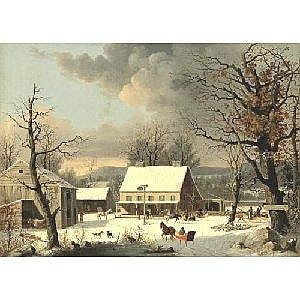This week’s post comes from Sarah Coulter, a first year student in the Museum Education M.A. program at Tufts.
During the 99th Annual New England Museum Association Conference, I attended a session that facilitated deep thinking and reflection on how museum professionals can bring the social justice lens into their own work. The session, Leading From All Levels: What You Can Do for Social Justice, was facilitated by Sara Egan and Nicole Claris. Egan is the School Partnership Manager at the Isabella Stewart Gardner Museum in Boston and Claris is the Manager of School Programs at the Museum of Fine Arts, Boston. Both women have created internal programs at their institutions that promote reflection, dialogue and action.
The session started with a mindfulness activity led by Nicole that helped center the group in what we were going to be doing. From here, they asked us what are we going to do with this information once we leave the session. The main idea of the session was to help other museum professionals identify their sphere of influence at their own institutions and what can one do within that sphere to promote equity and open-dialogue about that.
Nicole Claris then spoke about her own sphere of influence at the MFA. She identified that as the training program for MFA Gallery Instructors. She has been working for the past six years to make the training more inclusive. To do this she has worked to make the trainings speak to all of the museum’s collections, incorporate classroom teachers into how the instructors are taught, and make students real aspects of the training. Claris works to make equity part of her trainings every day, even in the smallest ways.
Sara Egan had a different sphere of influence at the Isabella Stewart Gardner Museum. She saw her sphere as the whole museum. Over a year ago she wanted to help staff connect with each other and build emotional support. For her, she wanted a regular opportunity for people who work together to talk to each other, outside of just work based conversations. This idea manifested itself into “Sanctuary for Staff,” a monthly discussion series where staff are invited to meet on the first Friday of each month.
Both facilitators identified that their spheres of influences were vastly different but that they show that leadership can happen at any level. From the examples they gave, the session moved into a workshop about how we as museum professionals can enact our own spheres of influences.
Here are 6 guiding steps to begin this process.
- The Work Begins with You.
– You must learn and acknowledge your values, assumptions, and biases to begin this process. Seek out resources that widen your perspective and practice empathy.
- Picture Success
– Articulate your goals. Determine what indicators will mark progress, be patient and celebrate small victories.
- Identify Your Sphere of Influence
– Where is this? Who will be in the room?
- Build Institutional Support or Not?
– How do your goals relate to institutional values and priorities? Build a network, this will keep you honest.
5. Identify Activities That Align with Your Goal
– Learn best practices, methods (VTS, Empathy Toolkit). Set clear expectations and meet people where they are.
- Put Your Collection to Work
– Incorporate the materials you already have into your practice.
After this discussion, we broke off and used a worksheet that helped outline what we can do once we get back to our own institutions and how we can identify our own spheres of influence. The practicality of this session was super engaging and really sparked some interesting discussions about the role museums play as agents of change, even within their own staff. I think this session held a lot more meaning for me because it was something that I could hopefully implement at a museum I work at. My main takeaway was no matter your role in a museum there is always the opportunity to spark change and discussion about equity, even in the smallest ways. All the participants left with the knowledge of how to effectively start this process.

![Paid Tech Studio Intern [Museum of Science, Boston, MA]](https://sites.tufts.edu/museumstudents/wp-content/themes/kale/sample/images/thumb1.jpg)

![Coordinator of School Partnerships and Teacher Programs [Museum of Fine Arts, Boston, Boston, MA]](https://sites.tufts.edu/museumstudents/wp-content/themes/kale/sample/images/thumb3.jpg)
